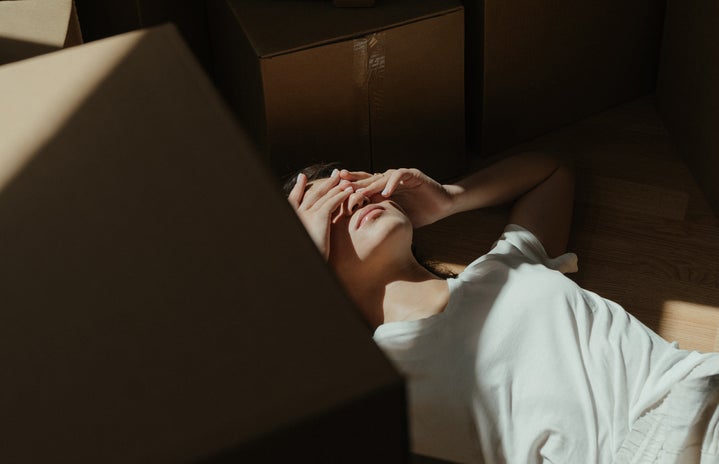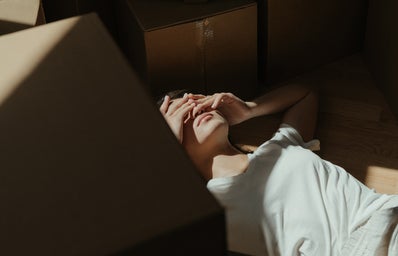When I was 12, I bought a pack of six matte, coiled hair ties. I slipped a navy blue one around my wrist and carried it with me every day for the next six years.
On September 15, I instinctively reached for my hair tie to put my hair up, but found my wrist was empty. I searched all over my apartment, then all over campus, asking confused workers through tears if they had seen an old, stretched-out hair tie, but my efforts were to no avail.
The day I lost my hair tie also happened to be the day my mom left after visiting for parents’ weekend, initiating the longest period I would go without seeing my family. As I called my mom through tears asking her to please search every inch of the car, she asked me why the hair tie meant so much to me. I had no response.
The hair tie had no significance until around the three-year mark when I realized how long I had had it. After that, it became a part of me. I continued to wear it every day, but it was intentional now. Its presence was no longer insignificant. At any moment, I was able to find an incredible amount of comfort in the mere knowledge that my hair tie was on me.
However, with that comfort also came panic whenever I realized I wasn’t wearing it. Its impact on me went both ways. When we make things bigger than they are, we also make them stronger, giving them the power to hurt us. That hair tie became more than just a faded piece of plastic; it became an amulet and a weapon.
A close friend of mine recently broke up with her first girlfriend. Although there was no animosity, she told me that her biggest fear was that one day they’d see each other and just smile awkwardly, not knowing what to say. “How could something be so special and then just gone?” she asked. Seeing the pain she was in made me wonder if it was worth it. Is it truly better to have loved and lost than to have never loved at all?
I once read a quote that said, “I feel everything so deeply. I don’t know if that allows me to see more of the world or less.” I don’t know either. With my hair tie, I saw past the monetary worth and saw emotional value, but I also lost sight of the fact that it was just an object and felt heartbroken over a piece of plastic. My friend experienced teenage love with every inch of her heart, but it was also every inch that broke when it was lost.
One thing my friend and I have in common is that we are both very sensitive and passionate — or “emotional” and “overdramatic”— the connotation varies. We both commit with every fiber of our being to every aspect of our lives. This means that losing a teenage love or even a plastic hair tie — two things with inevitable endings — feels like losing everything.
There was a point in my life when I would’ve done anything to feel everything a little less. I was a very emotional kid. I’d spend every night thinking about things I’m sure everyone had forgotten, and I couldn’t help but give everything and everyone the power to hurt me.
But as I got older, I learned that the capacity to feel so deeply is a blessing rather than a weakness. It’s the ability to experience everything, to make the most mundane things intimate and beautiful. It’s loving your friends with never-ending loyalty and loving your family with unconditional intensity. It’s long car rides with the windows down feeling pure happiness through the freedom and simple laughs with friends. It’s heavily loving and deeply mourning the little things and the big things, from plastic hair ties to high school girlfriends.


